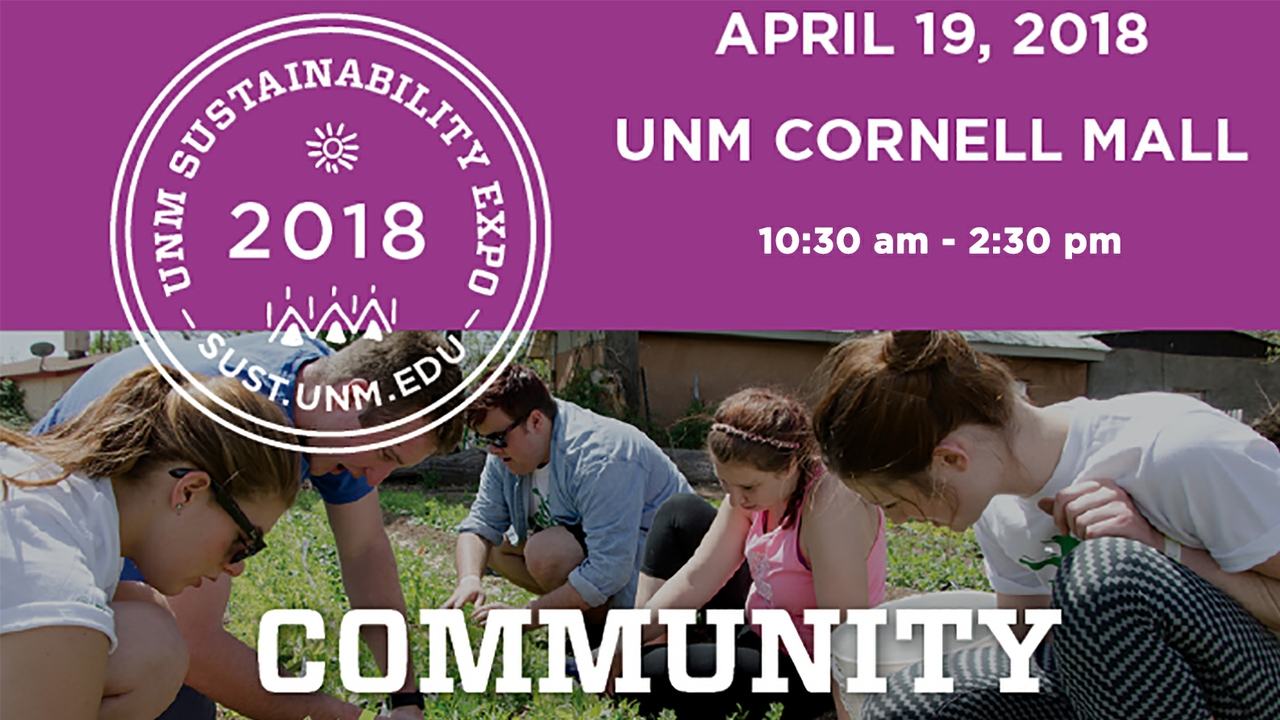Natasha Pineda embodies all the good things expected from an upcoming generation of millennials.
The environmental communications student strolled up wearing lavender leggings and sporting mirrored pink sunglasses, with her lovable Rottweiler/Australian Shepherd mix bouncing at her side.
When she ditched her denim jacket because of the late March sun, the flower and vine tattoos on her upper arms mirrored her spoken thoughts about growing a greener environment and creating a more sustainable culture.
“I care about this planet, and what is or is not being done to repair it and prevent further damage.” – Natasha Pineda, Communications/Sustainability Studies ‘18
The vibrant senior is one of several students presenting their capstone projects at the upcoming Sustainability Expo on Thursday, April 19 from 10:30 a.m. to 2:30 p.m. on the Cornell Mall. Presenting the projects is the culmination of the students’ Sustainability Studies Minor and is required as part of the degree. It’s the tenth year of the student-organized event, celebrated annually during Earth Week. The expo focuses on empowering the community to incorporate more sustainability into their lives. Campus and community groups come together to showcase ongoing initiatives, including local farmers and producers.
About 15 Sustainability Studies Program (SSP) students spent many long hours organizing this year’s event. Each year the group of organizers changes, giving the expo a fresh feel. Although it is part of the Growers' Market Practicum class (SUST-364), the students and their advisors see the expo not just as part of their studies, but as an opportunity to empower the community. According to Jessica Rowland, SSP lecturer, the hope is that attendees leave excited to meaningfully contribute to a more sustainable world -- whether that is at home, at work or in their community.
10th Annual Sustainability Expo
- Thursday, April 19
- 10:30 a.m. to 2:30 p.m.
- Cornell Mall
“It gives the University community an opportunity to learn about and celebrate sustainable initiatives both on campus and off, to connect with local experts and to check out simple steps to take action,” said Rowland. “We aim to use the Expo as a platform to grow a culture of sustainability by aligning values and practices on campus and in the community. This culture shift is a critical component of a resilient future in New Mexico and beyond.”
Pineda is hosting a repair café and clothing swap at the event, both of which are aimed at encouraging people to use community resources to meet their needs. She’s asking members of the community to come to her repair café and help others. For example, one person is bringing a sewing machine to teach others to patch-up their clothes.
“The repair café comes from the idea that when something is broken, don’t throw it away – fix it,” Pineda said. “It’s all about mindfulness and recognizing how every action you take is impacting something else, like another person or the planet.”
Pineda says it’s a time for people to come together and collectively share their knowledge. Even if people can only stay a little while, she hopes they will come to the repair café to support changing the culture of consumerism that has become prevalent in our society.
The Socorro native had no idea the scope of environmental issues, or that she was even interested in sustainability, until she took Tema Milstein’s Ecocultural Communication class. That’s when Pineda says things really hit home for her.

“I took her class and started to understand that these are real-time issues,” Pineda said. “Her class helped me find a course of study that not only includes my areas of interest, but also allows me to do something that matters with my life – something that’s purposeful.”
During her study abroad in Germany, Pineda says she was struck with how far behind the U.S. is when it comes to recycling and other sustainability practices.
“They pay people to recycle and people just do it anyways because they want to,” Pineda remembered. “I think the difference lies in the policies. They have recycling everywhere, you don’t see just a trash can – there is always a trash can and a recycle bin. Everyone bikes, and they’ve really made sustainability a part of their culture.”
It’s a culture shift Pineda hopes to see soon in the United States, starting with events like the Sustainability Expo.
“Everyone loves a good sense of community – that’s what it’s all about,” she said. “Taking care of each other and taking care of our planet.”


